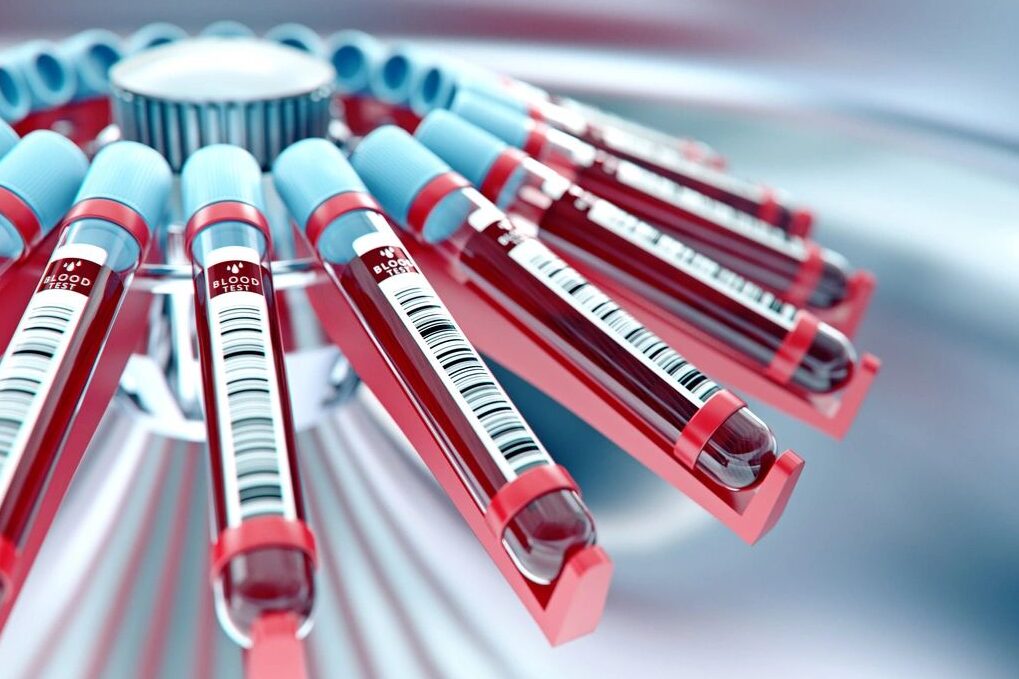Blood Testing to Inform and Measure
I’ve written several articles on where to start on your journey to being well and feeling better. They always begin small and then before I know it I have 8+ pages of what to do and not do. And then I think to myself, “nobody is going to jump in if it appears this complicated.” My primary goal in this site is to help simplify the process of getting from meh to amazing, but the honest truth is that we are not simple creatures. There is a LOT going on inside of us and even the most renowned experts in medical science are still learning.
So where do you start? Since what’s going on inside our bodies 100% impacts how we feel, it makes sense to start by taking a peek under the hood, aka blood tests. You might be saying, “well I get blood drawn every year during my annual checkup.” Well good for you but to be honest, the basic blood tests drawn by most PCP’s are often useless. They don’t provide enough information to holistically assess the current state of your body. And to add insult to injury, most doctors either don’t spend enough time reviewing yours labs to give you quality feedback, or they just go by the “normal” range and send you on your merry way. No, I’m not saying fire your doctor. I’m saying you may need to go elsewhere to get a holistic view of how well your engine is running.
The Alternative to Traditional Primary Care Doctors
Functional health providers are frequently good options to look into if you’re pursuing a better baseline metric of your health. What’s different about functional practitioners is that they look beyond the standard CMP, CBC and lipid panel and typically add in some vitamin, thyroid and inflammation markers. Some also include a more robust lipid panel which is important for getting a truer assessment of what’s happening in your arteries. If you aren’t already established with a functional medicine provider, the Institute of Functional Medicine has a search engine you can use to help you find a local provider. Their database isn’t exhaustive unfortunately (my provider wasn’t listed), so you may need to just do some googling. And if you live in a small town you aren’t out of luck as there are a growing number of practitioners that can see you virtually from anywhere in the US, some even globally. Dr. Will Cole is an example of such.
Function Health, a great self-serve option
Having said all that, you may just want to get some blood drawn and figure out the rest later. Fortunately, there are a lot of direct-to-consumer testing options these days which makes it convenient to just order what you want and head to the draw center. The downside, however, is that you need to know what to order and then also how to interpret your results. To save you from having to do a ton of research, I recommend taking a look at Function Health. Function Health was started by Dr. Mark Hyman and a few other doctors to bring robust testing at an affordable price to the masses. For $500/ year you get 100+ tests and the option to add on additional markers if you choose. Included is also another round of tests in 6 months to see how you’re progressing. Insurance doesn’t cover most of these markers, and as somebody who’s tried the insurance route and still paid $1,000’s of tests, I can tell you this is a good deal.
What I also like about Function Health, and what makes it my number one suggestion, is that they go into detail about your results in your online portal and also elaborate on optimal levels (not just “normal”). You can see a full list of their tests here as well as the add-ons (which have expanded significantly in the last few months).
What About Data Ownership?
One callout on Function Health that you should know, they do retain your data for research and analytical purposes. No, they aren’t selling your data but they don’t just throw it away once you have your results either. Accumulating a collection of biological data this robust and widespread allows them to do analysis on a scale that is otherwise impossible. I do not work for Function Health but I believe having access to such a large dataset will enable deep research and insights that will be catalysts for improving health on a holistic level. You can read their Privacy Policy and Terms of Service for more information.
Other Self-Serve Options
If you’d rather not give away the rights to your data, this comprehensive test through Dr. Jockers via DHA Lab is a good option. It does not include the expanded lipid panel or hormones (aside from testosterone), but it has about everything else you would want for a baseline. There is not any assistance with results interpretation, however. It costs $412 and the draw will be through Labcorp. I recommend setting up an account directly with Labcorp so you can get your results quickly once available. DHA Lab offers other direct-to-consumer testing as well, so you can bypass Dr. Jockers. That said, I do not see a one-stop-shop option to get all of what is in the custom Dr. Jockers panel.
Labcorp and Quest both offer DIY testing packages, but the bang for buck is not there. You will have to order multiple test packages to get everything you need and the total will quickly rack up well over $500. They also may not offer everything you’re looking for. For example, Labcorp does not have a self-serve option for insulin, which is crazy as it’s something so critical to know for your metabolic health.
There are several other self-serve testing options out there, and more coming every day. I’ll be providing a resource list of these soon in another post. In the meantime, I’d recommend going with one mentioned here. If you go another route, do your due diligence before signing up to ensure your data is protected, you aren’t paying more than you have to and a reputable lab is used for the draw/ analysis.
What Markers Do I Need?
For clarity’s sake, this is what I recommend you get at minimum for a baseline panel:
- CMP
- CBC
- GGT
- Lipid panel
- A1c and insulin
- Homocysteine
- C-Reactive protein (high sensitivity)
- Magnesium
- Vit D 25 hydroxy
- Vitamin B12
- Iron, TIBC, Ferritin
- Full thyroid panel including free T3 and T4, reverse T3, T3, TPO and antibodies
- Zinc and copper
What About Hormones?
For hormones, especially if you’re a female, I wouldn’t spend extra for a blood test. Our hormones change so frequently that having a single snapshot in time won’t really tell you much, in my opinion. I’d recommend doing a DUTCH test to get a good view of hormones (including cortisol and also some organic acids). This is another $350 however, through DHA Lab, so perhaps table this until a later date. This one is also fairly complex so I’d recommend doing this with the assistance of your health care provider.
Wrap Up
In summary, blood testing is a good way to know where things your health currently stands. After all, you can’t know where you’re going if you don’t know where you’re at. Doing this before you kick off a myriad of health improving initiatives also gives you something to compare your efforts to. Function Health is currently the most comprehensive and economical option for establishing a baseline.

